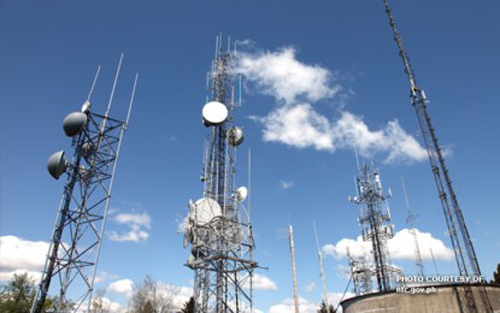The Anti-Red Tape Authority (ARTA) and the Private Sector Advisory Council (PSAC) Digital Infrastructure Sector yesterday called for the issuance of an executive order to institutionalize the ARTA initiatives aimed at easing doing business in the telecommunication sector.
ARTA Secretary Ernesto Perez said in a statement with the impending expiration of the subject JMCs next year, PSAC and ARTA jointly express their strong endorsement and support for an executive order prescribing the continuance of joint memorandum circulars issued starting in since July 2020 providing for the streamlined guidelines for the issuance of permits, licenses, and certificates for the construction of shared passive telecommunications tower infrastructure.
Perez said the implementation of these JMCs have produced significant results, especially in the number of telco permits approved.
Perez said pre-reform and post- reform periods, there were only 7,902 permits approved from July 2019 to June 2020, while 36,264 permits were approved from July 2020 to June 2021. In just one year of implementation, the ARTA telco initiative increased approved telco permits by 358.92 percent.
Perez cited a World Bank study which said the JMCs reduced the number of documentary requirements from 86 to 35, and the turnaround time from 241 working days to 16 working days as well as the number of documentary requirements from 62 to 26, and the turnaround time from 868 to 74 working days.
At the Anti-Red Tape Authority’s (ARTA) Telco Sector Summit on Tuesday, Michelle Ora, Globe vice president for Site Lifecycle Management Services said the company is pushing for the permanency of easing of permitting process for telco infrastructure under the Bayanihan to Recover As One (Bayanihan 2) law which was enacted at the height of the pandemic, to expand the country’s capacity for connectivity as demand soared.
“Globe is pushing for the permanency of these provisions to sustain the infrastructure builds, aligned with the government’s aspiration for nationwide digital adoption and digital transformation in the country. Once a permanent aspect of doing business, local government units will be compelled to issue local ordinances requiring compliance to telco infrastructure standards.” Ora said.
Through the eased permitting process, Globe was able to ramp up its builds, securing nearly 12,000 permits for the construction of new facilities over the last three years. From 2020 to the third quarter of 2022, Globe built 3,600 new sites and connected 1.4 million fiber-to-the-home lines. In all, it served a cumulative 124.5 million wireless and fixed line subscribers in 2020 and 2021.
In comparison, before the streamlined permitting process, Globe was able to build just 500 towers in 2018 and 1,100 in 2019. – Irma Isip and Myla Iglesias.




